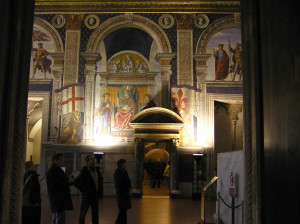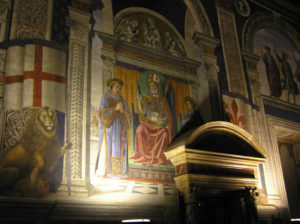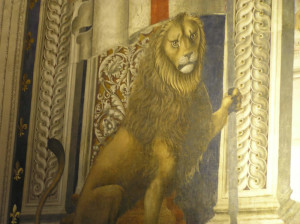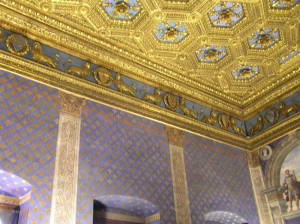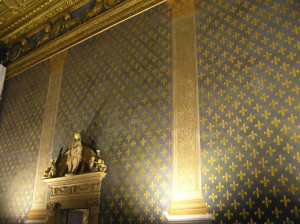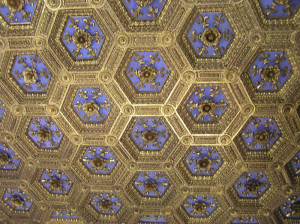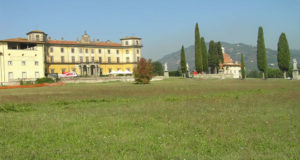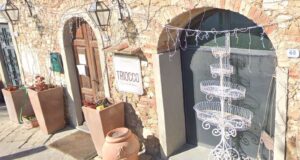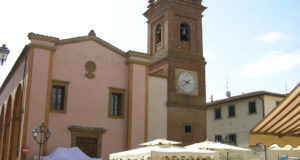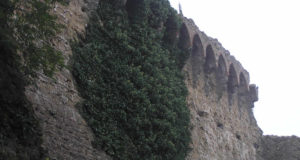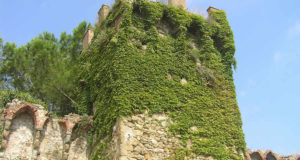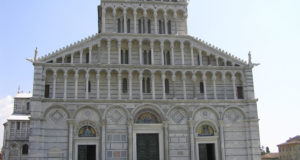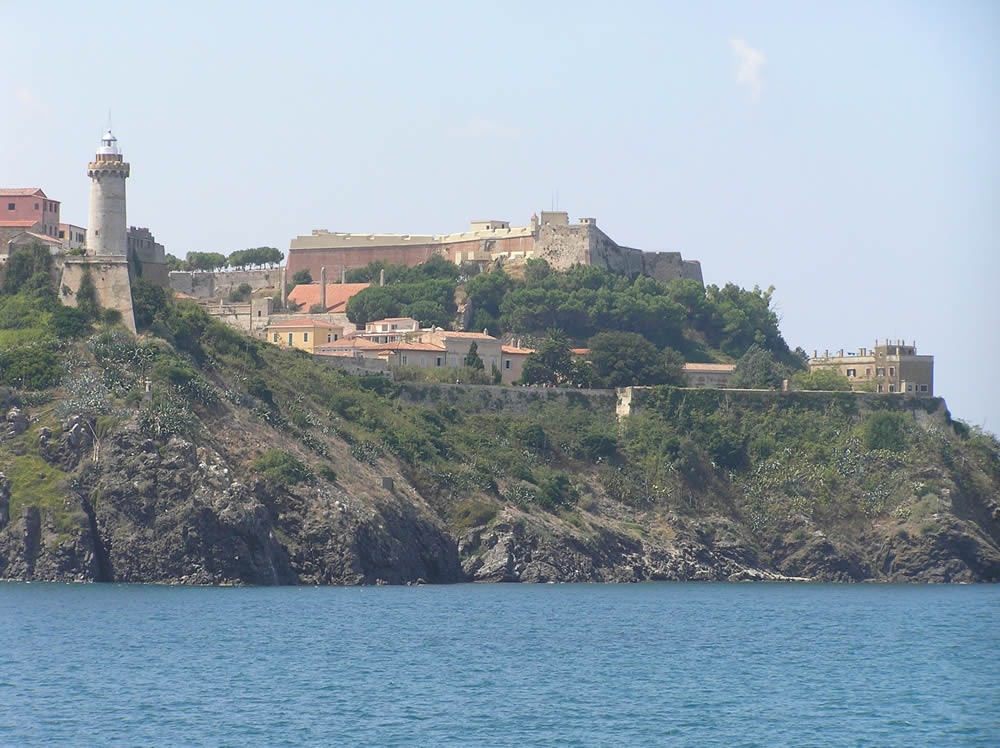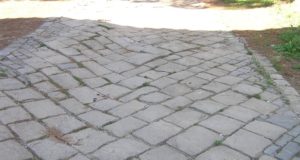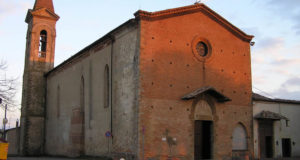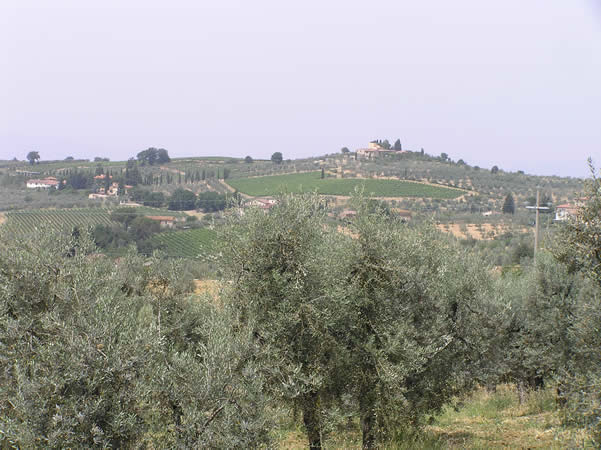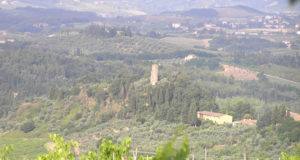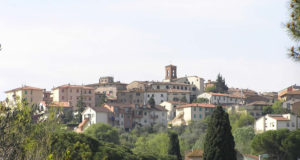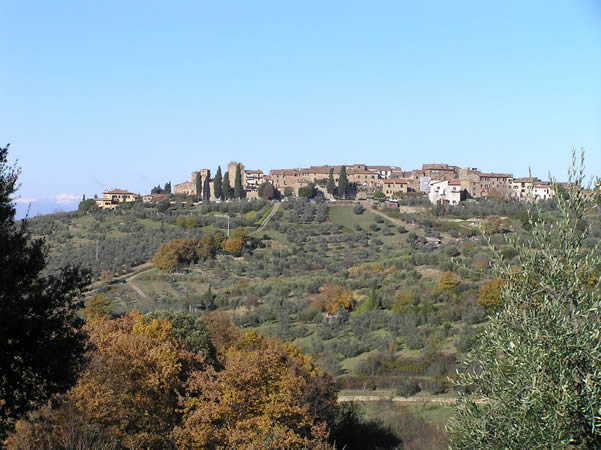The Hall of the Lilies (Sala dei Gigli) takes its name from the floreal decorations on its ceiling and walls, it’s the only one Hall of Palazzo Vecchio that still today conserve the 15th century aspect. The Hall was obtained in 1472 from the division in two rooms of the Sala Grande carried out from Benedetto and Giuliano da Maiano, the two rooms are today the Sala dei Gigli and the Sala delle Udienze.
In this room is exposed the bronze statue of Judith and Holofernes, a masterpiece by Donatello (Donato de’ Bardi said Donatello). The statue was made between 1457 and 1464.
A ROOM WITH A FOURTEENTH CENTURY ASPECT
The room is decorated with coffered ceilings with carved and gilded ornaments and flowers (lilies) on a blue field. Both the ceiling and frieze with lions are by Giuliano da Majano. While the lilies are in honor of the King of France the protector of the Florentine Republic. The marble portal that connects the Sala dei Gigli with the Audience Hall is the work of Benedetto and Giuliano da Majano. The wooden door inlaid with Dante and Petrarch (1476-1480) is the work of Giuliano da Majano and Francesco di Giovanni said il Francione.
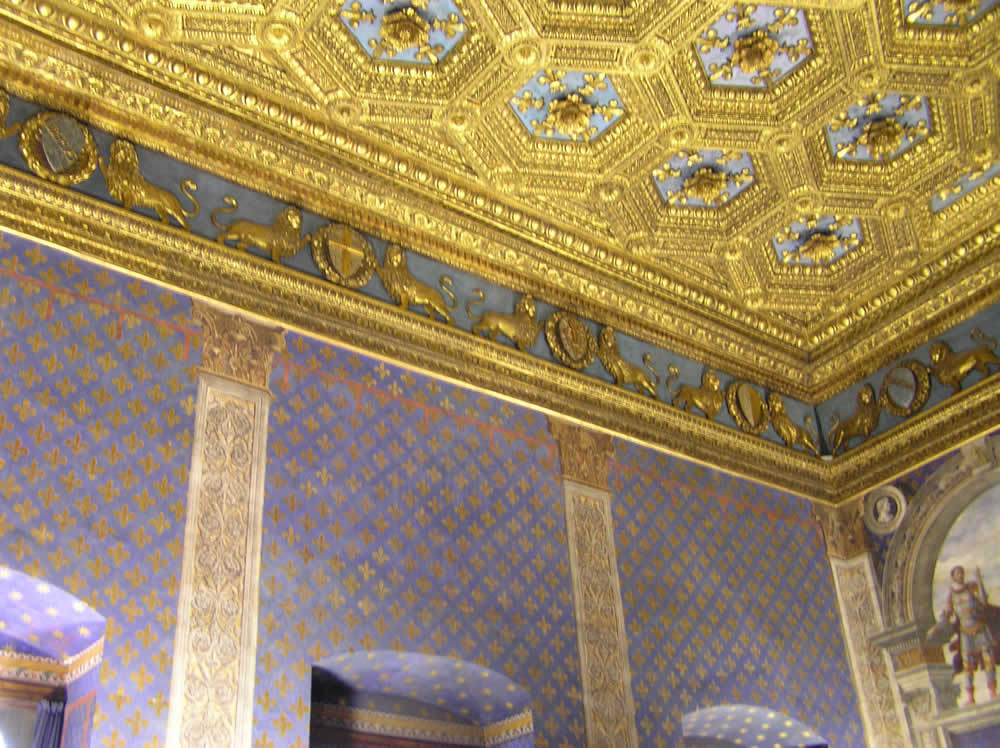
Hall of the Lilies (Sala dei Gigli), Palazzo Vecchio, Florence. Author and Copyright Marco Ramerini.
On the east wall has a series of frescoes by Domenico Ghirlandaio (Domenico Bigordi said il Ghirlandaio), representing a classical composition with faux painted architecture that divide the composition into three sectors. The central sector presents Saint Zenobius with St. Stephen and St. Lawrence. While the two side sections are figures of characters from Roman history (right depicts Decius, Scipio and Cicero left Brutus, Muzio Scaevola and Furio Camillo). The frescoes were executed by Ghirlandaio between 1482 and 1485. In the sixteenth century as a result of the restoration of the Palazzo Vecchio executed by Vasari part of the frescoes were damaged by the opening of a door towards the Hall of Geographical Maps.
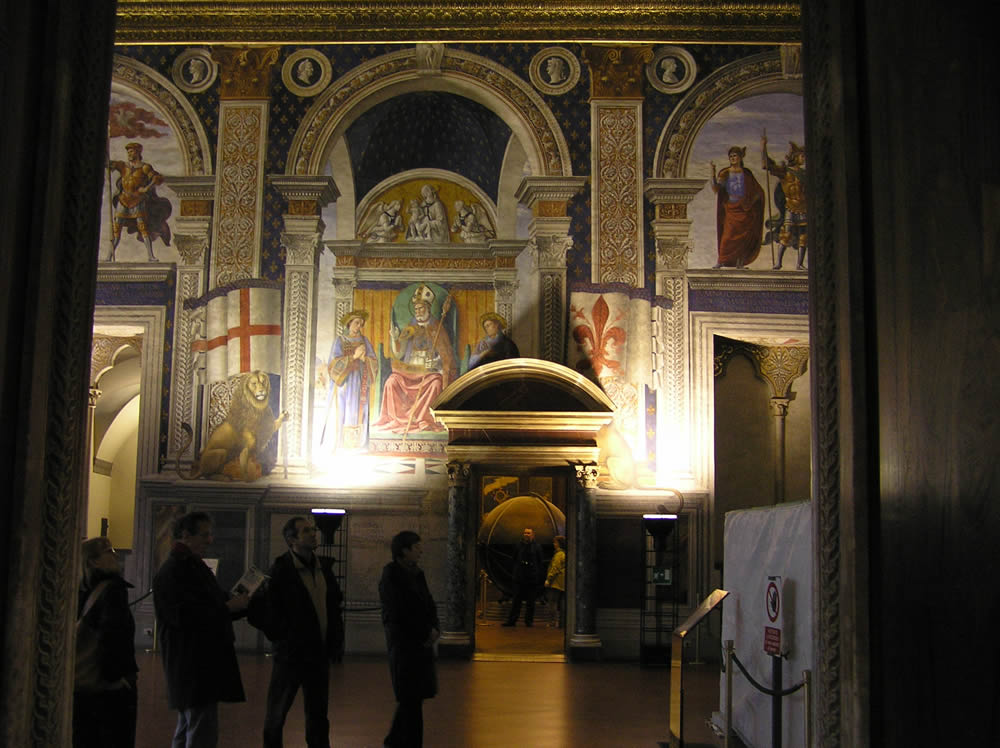
The frescoes by Domenico Ghirlandaio, Hall of the Lilies (Sala dei Gigli), Palazzo Vecchio, Florence. Author and Copyright Marco Ramerini.
On the wall where there are frescoes by Ghirlandaio open two windows of the fourteenth century, this wall was in fact the outer wall of the Palazzo Vecchio before the addition of the late fifteenth century. The Sala dei Gigli through these old windows leads to both the Chancellery and the Hall of Geographical Maps.
ANCIENT CHANCELLERY
The ancient Chancellery of the Republic of Florence is a small room where were probably the offices of the clerks of the Republic, including the famous Niccolò Machiavelli, in his memory in the room is his bust. During the Medici period the room was used as a wardrobe. Here is also the original bas-relief of “St. George slaying the dragon” by Andrea da Pontedera which was located on the outside of Porta San Giorgio of walls of Florence.
The visit of the Palazzo Vecchio continues to the Hall of Geographical Maps.
- The frescoes by Domenico Ghirlandaio, Hall of the Lilies (Sala dei Gigli), Palazzo Vecchio, Florence. Author and Copyright Marco Ramerini.
- The frescoes by Domenico Ghirlandaio, Hall of the Lilies (Sala dei Gigli), Palazzo Vecchio, Florence. Author and Copyright Marco Ramerini.
- The Marzocco, fresco by Domenico Ghirlandaio, Hall of the Lilies (Sala dei Gigli), Palazzo Vecchio, Florence
- Hall of the Lilies (Sala dei Gigli), Palazzo Vecchio, Florence. Author and Copyright Marco Ramerini.
- Hall of the Lilies (Sala dei Gigli), Palazzo Vecchio, Florence. Author and Copyright Marco Ramerini.
- Ceiling, Hall of the Lilies (Sala dei Gigli), Palazzo Vecchio, Florence. Author and Copyright Marco Ramerini.
 Borghi di Toscana Guida ai borghi e ai paesaggi della Toscana
Borghi di Toscana Guida ai borghi e ai paesaggi della Toscana

